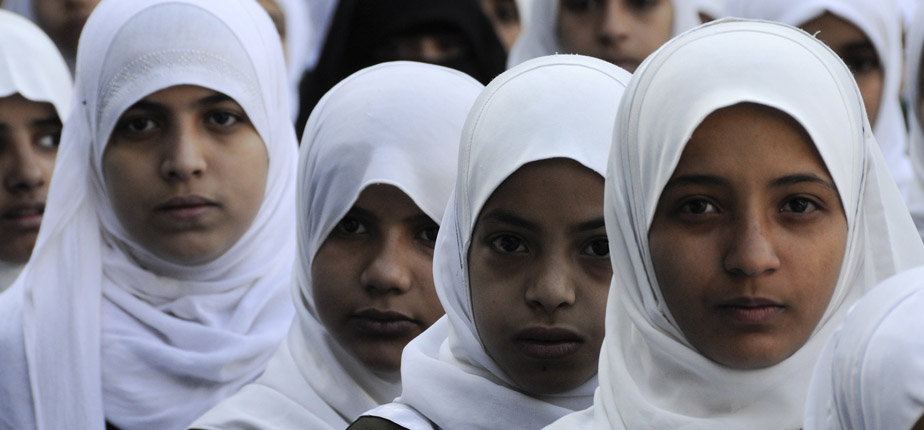
Elham Asaad Buaras
Austria’s far-right Freedom Party (FPÖ) and centre-right People’s Party (ÖVP) have reached an agreement to ban the hjiab for girls under 14 in schools, according to a leaked government draft. The controversial measure is part of ongoing coalition negotiations, despite the country remaining without a new government since the September 29 elections.
The leaked 233-page document, described by Austrian media as a “confidential protocol,” reveals broader plans to tighten immigration policies, limit social benefits, and expand state control over Islamic religious education. It labels the headscarf a “tool of coercion” and suggests extending the ban to public institutions.
Austria has previously implemented restrictions on wearing of the niqab and hijab.
In 2017, the government passed a law banning face-covering garments, such as the burqa and niqab, in public spaces, citing integration and public safety concerns. In 2019, the headscarf was banned in primary schools for girls under 10, with lawmakers arguing it was necessary to promote gender equality.
However, Austria’s Constitutional Court struck down the primary school headscarf ban in 2020, ruling it discriminatory and stating that it unfairly targeted Muslim girls. Despite this legal precedent, the new coalition agreement revives the push for a broader ban, potentially setting up another legal battle.
Other key proposals in the leaked draft include ending Türkiye’s EU accession talks and shutting down groups deemed “dangerous,” such as Liste Gaza—a political movement formed in July 2024 to challenge Austria’s stance on the Gaza conflict. Liste Gaza, officially called “Liste Gaza: Stimmen gegen den Völkermord” (“Gaza List: Voices Against Genocide”), was created by activists demanding stronger action against Israel’s military campaign in Gaza. The party campaigned under the slogan “Vote Against Genocide” in Austria’s 2024 elections, calling for an immediate ceasefire, support for Palestinian statehood, and a return to Austria’s constitutional neutrality.
While Liste Gaza has gained support for bringing the Palestinian issue into Austrian political discourse, it has also faced criticism. Some opponents accuse the party of fostering anti Semitism, citing its affiliations with far-left groups like the Antiimperialistische Koordination (AIC), which has been labelled anti-Semitic by certain organizations. Its leadership, including sociologist Irina Vána and lawyer Astrid Wagner, has openly criticized Austria’s mainstream parties for avoiding condemnation of Israeli military actions.
However, significant rifts remain between the FPÖ and ÖVP, particularly on foreign policy and ministerial control. The FPÖ, known for its pro-Russia stance, has clashed with the ÖVP over Austria’s EU relations. Additionally, the FPÖ is pushing for control over the interior and finance ministries, a major sticking point in negotiations.
Leaders from both parties are set to meet before consulting President Alexander Van der Bellen, a decision that could either push the coalition talks forward or send Austria into further political uncertainty.
(Photo credit: Dana Smillie/World Bank)

